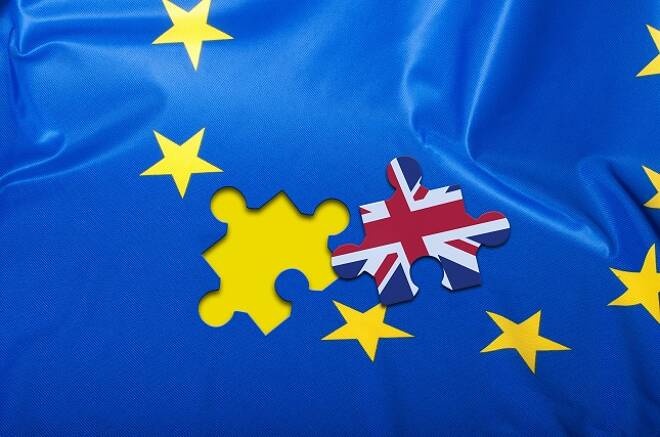Advertisement
Advertisement
Brexit, the Internal Market Bill Clamor, and the Pound
By:
The news wires are flooded as Boris Johnson looks to progress his contraversion Internal Market Bill. For the Pound some much-need respite.
The latest
Brexit and a united Tory Party front took a U-Turn this week largely thanks to Johnson’s Parliamentary majority.
With the Johnson majority voting through the Bill for further debate, it was an awakening for many.
Over the last few years, the Tory Party struggled to make the slightest of changes or introduce new legislation. A lack of a sizeable majority had handcuffed the British government from getting Brexit over the line.
Now that the majority is there, Boris Johnson has been able to get a controversial Bill smoothly through its 1st test.
The Bill has not only created a furor in Europe but also at home. Tory Party members had abstained from Monday’s vote in protest, with 2 even voting against the Bill.
For MPs, the biggest issue is that there had been concession at the ministerial level that it breaches international law.
What is the Internal Market Bill?
The Bill voted through the House of Commons on Monday looks to ensure free trade flow across England, Wales, Scotland, and Northern Ireland.
It is designed to focus on trade and comes at a time when both sides have failed to make progress on a trade agreement.
In essence, the Bill looks to address how Northern Ireland can fall under the new Bill when it shares a border with the Republic of Ireland.
This becomes even more convoluted when you consider the Northern Ireland Protocol. The Northern Ireland Protocol is in place to prevent the introduction of a hard border on the Emerald Isle.
Because of the Protocol, Northern Ireland must currently adhere to certain EU rules to allow goods to move freely between Northern Ireland and the Republic of Ireland.
For the EU and those in uproar, the issue is that the Bill, if voted through, would supersede certain facets of the Withdrawal Agreement.
The key area of contention is in the fact that the Bill would empower ministers to make regulations that contravene the Withdrawal Bill. Within the Withdrawal Bill, the UK is required to use primary legislation to give full effect to the Withdrawal Agreement in domestic law.
In other words, the government cannot introduce legislation that deviates from the terms of the Withdrawal Agreement. There is one caveat in all this… While the Bill can exist, it is using the powers granted from the Bill that would contravene the Withdrawal Bill and break international law.
Why the Uproar?
Simply viewing recent comments from EU leaders and from members of parliament and Johnson’s living predecessors paints a clear picture.
German Chancellor Merkel ally, Detlef Seif, reportedly said that he used to think that the UK was a state that upheld the rule of law with which one could negotiate. Seif added that his behavior would rank Britain alongside depots and regimes such as Russia, Turkey, China, and North Korea.
Prime Minister Johnson has yet to flinch. Number 10 even sent a message to the Lords in a bid to push through the bill.
While a relationship with the EU is at stake, there is also the U.S to consider.
To make matters worse for Johnson and the hardline Brexiteers…
Last week, through Nancy Pelosi, the U.S government stated that there would be no UK-US trade agreement if the Good Friday Agreement was jeopardized.
This week the media reported that 4 senior congressmen also issued a similar warning. The U.S would block a trade agreement if the UK failed to uphold the Good Friday agreement.
The Pound
At the time of writing, the Pound was up by 1.38% to $1.29708 for the current week.
Following last week’s Brexit frenzied 3.64% tumble to sub-$1.28 levels, the recovery is a modest one.
The House of Lords will vote on the bill next week. So, the uproar is unlikely to end just yet.
For the Pound, some political resistance to the Johnson Brexit line has provided welcome relief.
This leaves the bill’s passage and the EU and UK response as the key Brexit driver. If the Bill passes, will the EU continue with negotiations?
The British PM may have taken a leaf out of the U.S President’s book. Boris Johnson will have something to concede other than UK fisheries.
Whether EU negotiators see it that way is another story, however. Expect the volatility in the Pound to persist. Britain is leaving the EU, one way or another, in a matter of months…
About the Author
Bob Masonauthor
With over 28 years of experience in the financial industry, Bob has worked with various global rating agencies and multinational banks. Currently he is covering currencies, commodities, alternative asset classes and global equities, focusing mostly on European and Asian markets.
Advertisement
